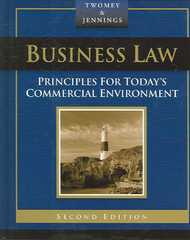

Please with me with these questions:
The year is 2016 and Britain is thinking about leaving the European Union, which will bring back trade barriers between the two trading partners. There are approximately 300 million people in the EU (without Britain) and 50 million people in Britain. Assume that: 1. if Britain leaves the EU there will be NO MORE TRADE between the two starting in 2021, 2. there is no trade with any other countries, 3. there are only two products produced: bread and cheese. 4. the factors required to make bread or cheese are labor and capital. Assume that: 1. the percentage of wealthy people is twice as high in Britain than in the EU (or, in other words, assume Britain has twice as much capital per person, on average, as the EU). 2. producing cheese is a more capital-intensive process than making bread. 3. workers in each country can NOT easily move back and forth between making bread and making cheese, and capitalists in each country can NOT easily repurpose their factories back and forth between making bread and making cheese. QUESTION: The British Parliament (legislature) is elected in single-member districts, which is a majoritarian electoral system. If the Parliament was elected through a proportional representation system, would this make the legislature more or less likely to leave the EU? O a. No difference O b. Less likely O c. More likelyThe year is 2016 and Britain is thinking about leaving the European Union, which will bring back trade barriers between the two trading partners. There are approximately 300 million people in the EU (without Britain) and 50 million people in Britain. Assume that: 1. if Britain leaves the EU there will be NO MORE TRADE between the two starting in 2021, 2. there is no trade with any other countries, 3. there are only two products produced: bread and cheese. 4. the factors required to make bread or cheese are labor and capital. Assume that: 1. the percentage of wealthy people is twice as high in Britain than in the EU (or, in other words, assume Britain has twice as much capital per person, on average, as the EU). 2. producing bread is a more capital-intensive process than making cheese. 3. workers in each country can easily move back and forth between making bread and making cheese, and capitalists in each country can easily repurpose their factories back and forth between making bread and making cheese. QUESTION: Who in Britain will be in favor of leaving the EU? O a. All workers O b. Cheese workers and Cheese factory-owners O c. All factory owners O d. No-one O e. Bread workers and Bread factory ownersThe year is 1972 and Britain is thinking about joining the European Union, which will eliminate all trade barriers between the two trading partners. There are approximately 300 million people in the EU (without Britain) and 50 million people in Britain. Assume that: 1. there is NO TRADE between Britain and the EU in 1972, and trade will begin in 1973 when Britain joins the EU, 2. there is no trade with any other countries, 3. there are only two products produced: bread and cheese. 4. the factors required to make bread or cheese are labor and capital. Assume that: 1. the percentage of wealthy people is twice as high in Britain than in the EU (or, in other words, assume Britain has twice as much capital per person, on average, as the EU). 2. producing cheese is a more capital-intensive process than making bread. 3. workers in each country can NOT easily move back and forth between making bread and making cheese, and capitalists in each country can NOT easily repurpose their factories back and forth between making bread and making cheese. QUESTION: Who in the EU will be against Britain joining the EU? O a. All workers O b. Bread workers and bread factory owners O c. Cheese workers and Cheese factory owners O d. All factory ownersThe year is 1972 and Britain is thinking about joining the European Union, which will eliminate all trade barriers between the two trading partners. There are approximately 300 million people in the EU (without Britain) and 50 million people in Britain. Assume that: 1. there is NO TRADE between Britain and the EU in 1972, and trade will begin in 1973 when Britain joins the EU, 2. there is no trade with any other countries, 3. there are only two products produced: bread and cheese. 4. the factors required to make bread or cheese are labor and capital. Assume that: 1. the percentage of wealthy people is twice as high in Britain than in the EU (or, in other words, assume Britain has twice as much capital per person, on average, as the EU). 2. producing cheese is a more capital-intensive process than making bread. 3. workers in each country can NOT easily move back and forth between making bread and making cheese, and capitalists in each country can NOT easily repurpose their factories back and forth between making bread and making cheese. QUESTION: If Britain joins the EU, who in Britain will experience a decrease in income from the new trade? O a. All factory owners O b. Cheese workers and Cheese factory owners O c. All workers O d. Bread workers and bread factory owners












